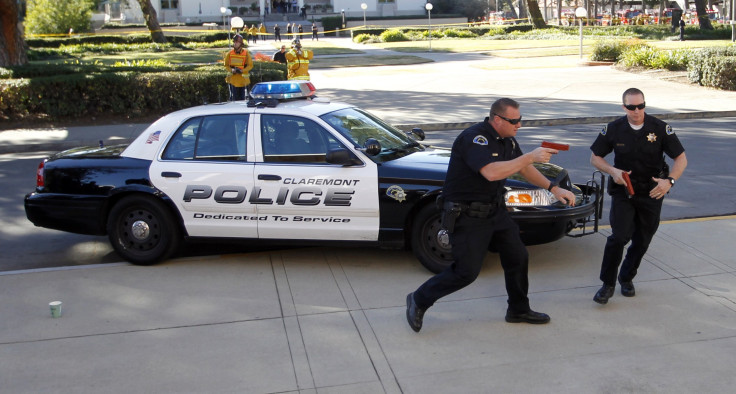LAPD Plan To Deploy 7,000 Police Body Cameras Dwarfs Programs In NYC, Other Major Cities

By fitting its police department with 7,000 body cameras, the city of Los Angeles wil be the biggest test case for the current notion that increased surveillance – on cops as well as the public – will lead to better policing. The initiative, announced Tuesday, dwarfs the body camera programs in other major U.S. cities.
Mayor Eric Garcetti said most LAPD cameras are expected to be in use by July 2016. His announcement comes after the Obama administration announced it would dedicate $263 million to equip state and local police around the country in an attempt to provide greater transparency after a number of controversies in which police fatally shot unarmed African-American males, sparking protests around the country. It also comes after police in Rialto, California, just east of Los Angeles, reported that cameras led to a more than 50 percent reduction in use-of-force incidents.
“The trust between a community and its police department can be eroded in a single moment,” Garcetti said Tuesday, as quoted by the Los Angeles Times. “Cameras are not a panacea, but they are a critical part of the formula.”
The New Orleans police department, for instance, has 400 cameras, while New York City only recently introduced a pilot program, equipping 60 officers with body cameras. The LAPD began testing body cameras a year ago, officials added, before ultimately settling on the Taser Axon technology.
Yet there are concerns about how the program will be instituted. The LAPD has been criticized for doing too little to punish officers accused of tampering with video footage recorded from in-car cameras. The American Civil Liberties Union has voiced strong opposition to letting officers view the footage before it’s logged, and it has recommended strict security policies to ensure that an individual doesn’t find himself on YouTube after a contentious interaction with an officer.
“Our country and our city are in a critical point of time when it comes to policing communities, especially communities of color,” Los Angeles Councilman Curren Price, who serves a community where a number of police shootings have occurred, told the Times. “It’s about increasing accountability and transparency so we can continue to build trust.”
© Copyright IBTimes 2025. All rights reserved.




















